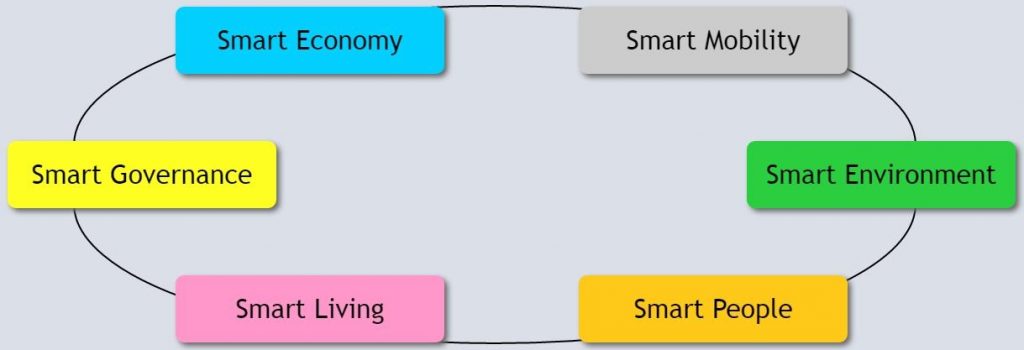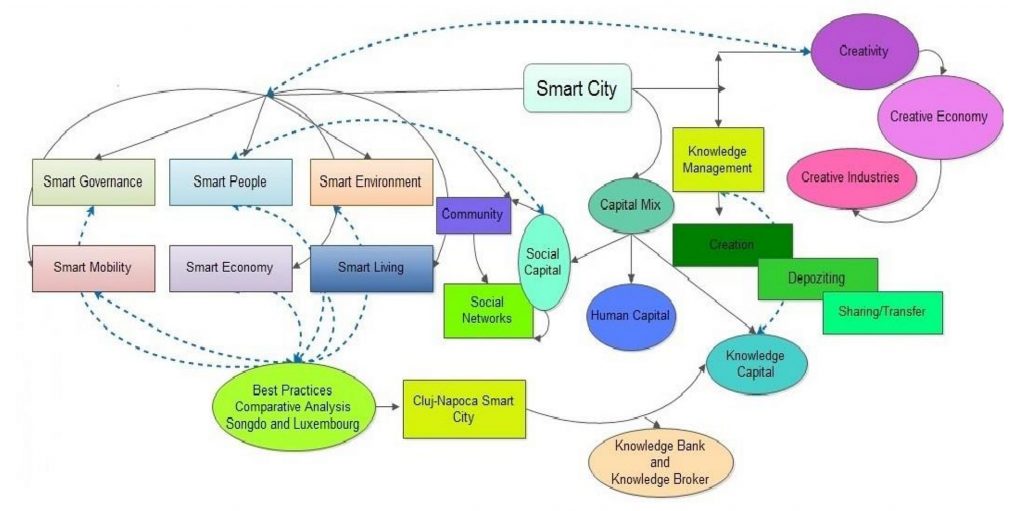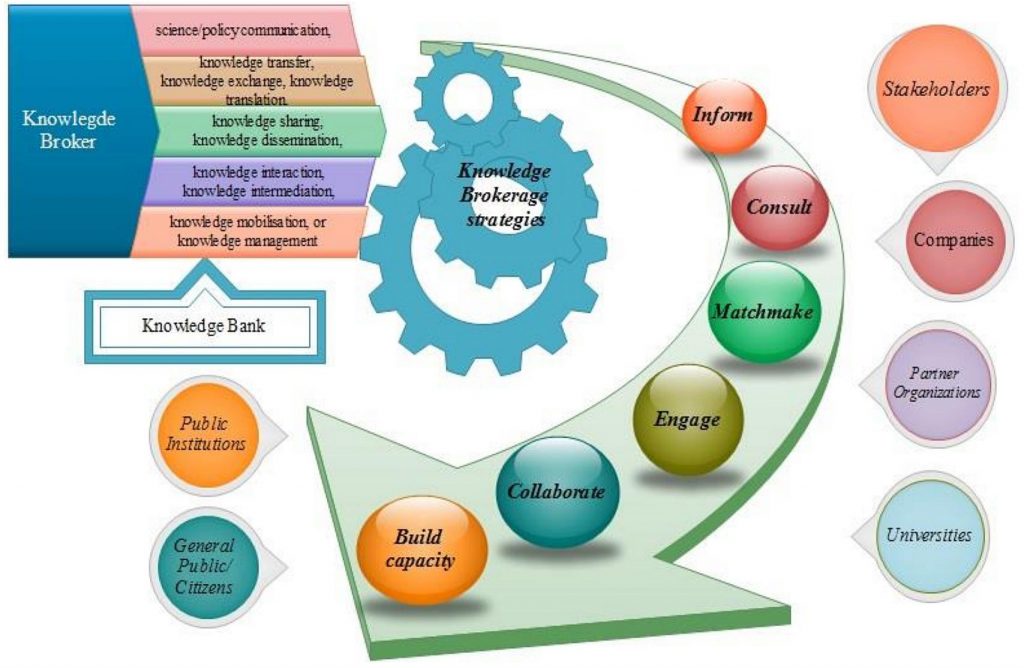
Smart cities and knowledge management
The “smart cities” concept is gaining considerable momentum, with recent initiatives including the India Smart Cities Challenge, the United States government’s Smart Cities Initiative, and the Australian Government’s Smart Cities Plan and Smart Cities Summit.
So what is a “smart city”, and what is the role of knowledge management in the development and governance of smart cities?
What is a smart city?
Drawing on the synopsis of a forthcoming paper by Dr. Sam Musa, Professor of Cybersecurity at University of Maryland, Wikipedia defines a smart city as:
…an urban development vision to integrate multiple information and communication technology (ICT) solutions in a secure fashion to manage a city’s assets – the city’s assets include, but not limited to, local departments information systems, schools, libraries, transportation systems, hospitals, power plants, water supply networks, waste management, law enforcement, and other community services. The goal of building a smart city is to improve quality of life by using technology to improve the efficiency of services and meet residents’ needs.
Similarly, the new report Smart Cities – Time to involve the People from the UK Institution of Engineering and Technology has a technology focus in its definition of a smart city:
A smart city uses modern digital communications technology to monitor, manage and enhance key infrastructure and public services. This can include transport and traffic management, energy, water and waste management, healthcare and other community services.
However, while not specifically defining a smart city, the Australian Government’s Smart Cities Plan has a wider focus. Technology is just one of three pillars of the plan, which are smart investment, smart policy, and smart technology.
The United States government’s Smart Cities Initiative and India Smart Cities Challenge also have a wider focus. The US Smart Cities Initiative aims “to help local communities tackle key challenges such as reducing traffic congestion, fighting crime, fostering economic growth, managing the effects of a changing climate, and improving the delivery of city services.” The guidelines for the India Smart Cities Challenge advised that:
Smart solutions are bold and impactful, and strengthen the city’s governance or its physical, social, or economic infrastructure.
Good ideas come in many shapes and sizes, and are designed to improve quality of life. They may involve technology, institutional or managerial reforms, and the involvement of citizens. The choice of solution is only smart if it is right-sized to the challenge it aims to address
Similarly, the European Smart Cities program of the Vienna University of Technology also has a focus beyond just the application of technology:
A Smart City is a city well performing in 6 key fields of urban development, built on the ‘smart’ combination of endowments and activities of self-decisive, independent and aware citizens.
The six key fields of the European Smart Cities model are shown in Figure 1 below.

The original proponents of the concept of “smart cities” may have had a primary focus on technological integration, but as the number of smart cities initiatives grows, a broader agenda is being adopted. Irungbam confirms this evolution in a recent paper1 that reviews 24 definitions of a smart city in the published literature:
It is observed that smart cities as a concept has evolved from a narrow perspective of integrating innovative technology towards building intelligent infrastructure, into a more intricate urban system that calls for social and institutional participation.
The City of St. Albert in Canada proposes a smart city definition that encompasses this wider focus, and also recognises that there is no universal way to design a community of the future, with a smart city strategy or initiative needing to be relevant to each individual community. The City of St. Albert defines a smart city as:
An urban area that solves its core issues through innovation and collaboration, and that applies new technologies and data for the benefit of all.
What is the role of knowledge management in smart cities?
Very little research looking at the role of information and knowledge in smart cities appears to have been conducted. Only a few relevant papers could be located, and most of these explore conceptual issues, offering little in the way of tangible recommendations or actions that could be readily implemented by the governments carrying out initiatives such as those underway in India, the US, and Australia.
For example, a paper by Nam and Pardo2 in the Proceedings of the 12th Annual International Digital Government Research Conference identifies “A set of the common multidimensional components underlying the smart city concept and the core factors for a successful smart city initiative”.
In another example, a paper by Negre, Rosenthal-Sabroux, and Gascó3 “proposes a knowledge-based conceptual vision of the smart city, centered on people’s information and knowledge of people, in order to improve decision-making processes and enhance the value-added of business processes of the modern city.”
In a further example, a paper by Chourabi et al.4 “proposes a framework to understand the concept of smart cities.”
The focus on researching conceptual issues to do with smart cities while significant national smart cities initiatives are already underway suggests that smart cities research is well behind smart cities practice, which raises serious concerns about the extent to which decision-making in regard to smart cities is evidence-based.
One paper that does offer some tangible conclusions is a conference paper by Ritter and Varma5, who report finding common threads across the smart cities efforts of governments in both developed and developing countries in regard to:
…leveraging (a) data – to get smart insights (b) ideas – crowd sourcing for better public services and their delivery (c) knowledge – to develop smart device apps to enable citizen to play a constructive stakeholder role in development of smart cities and delivery of smart governance.
Initiatives to leverage data for smart insights are already well advanced. Examples include:
- mySidewalk, which has “helped more than 2,000 organizations understand their communities by empowering them to make better decisions using simple data analysis tools to answer questions like ‘How has this place changed over the past decade?’ and ‘What is the demographic makeup of my project area?'”
- Smart City Monitor, which is “enabling digital transformation of big data streams from smart everything into rich set of data driven information services for citizens, businesses, administrations, tourists to control, prevent, command, answer questions and take right actions in real time”.
- Australian Urban Research Infrastructure Network (AURIN), “a national collaboration delivering e-research infrastructure to empower better decisions for Australia’s urban settlements and their future development.”
- What Works Cities Toolkit, which includes “best practices in designing open data policies and creating open data portals, advancing performance management programmes by setting stronger targets, utilising behavioural insights to run randomised control trials and better managing city contracts.”
A number of perspectives published in The Conversation have highlighted the importance of involving citizens in the development of smart cities and the delivery of smart city governance:
- The article Early experiments show a smart city plan should start with people first advises “that people have to be at the core of any smart city agenda.”
- The article ‘30-minute city’? Not in my backyard! Smart Cities Plan must let people have their say puts forward five points to consider when including people in the delivery of the 30-minute city proposed in the Australian Government’s Smart Cities Plan.
- The article While governments talk about smart cities, it’s citizens who create them proposes that “governments could use their funds to develop an organic innovation ecosystem geared toward smart cities, similar to the one that is growing in the US. It is more about bottom-up innovation than top-down schemas.”
Knowledge management has a range of tools and techniques that can be used to facilitate smart insights, generate ideas and assist with their adoption, and enhance citizen input into smart city decision-making. Knowledge managers are encouraged to consider how they can advocate for and facilitate the adoption of these tools and techniques in smart city initiatives.
A paper by Porumb and Ivanova6 puts forward one way in which this could be done, using the case study of the Romanian city of Cluj-Napoca and drawing on best practices from Luxembourg and Songdo, South Korea.
The paper proposes bringing together the European Smart Cities model (Figure 1 above) and the concept of knowledge management, with the aim of harnessing knowledge as “a powerful tool for transition, development and transformation.” A Knowledge Broker Intervention Model (KBIM) is proposed as the key lever for change.
From a knowledge management point of view, a smart city:
…represents a complex network of connections that are in constant motion and evolution, influenced by the capital mix flow connected to the needs of an innovative community complemented by an appropriate legislative framework, opened and transparent, supported by public-private partnership, whose development is doubled by its human resource expertise and the creativity factor of its population.
The mind map in Figure 2 below shows how the proposed KBIM would operate. In the KBIM:
…the knowledge broker’s main role is to nurture and build relationships to sustain the flow of information between researchers and decision-makers on one hand, and among the organizational layers of the society, on another. The knowledge broker is not only a social means, its reason for being is to ensure that the transferred knowledge is based on solid research and that it is available for decision makers, and its target is to ensure that the end result will consist of productive change.

The functions of the knowledge broker are shown in Figure 3 below. They are:
- Inform: The intent of informing is to disseminate content; it is mostly related to unidirectional knowledge transfer.
- Consult and link: This strategy refers to linking expertise to needs in a specific area.
- Matchmaker: Matchmaking brings together individuals who can be a factor to an envisaged action.
- Engaged/focused cooperation: Engaging as a form of brokering involves the party who is responsible for addressing the problem establishing and implementing a process of involving others with salient expertise.
- Cooperation / Strategic cooperation: Cooperation requires all participants in mutually developing a process through which they could interact with one another, and to negotiate and reach a common problem (question) to be addressed.
- Build capacity / Building sustainable institutions: Capacity building is broadly defined as growing the ability of people and institutions to do what is expected of them to do.

See also: Knowledge brokers: connecting research and practice.
Image source: SCXFC_63 by Smart Cities is licensed by CC BY 2.0.
References:
- Irungbam, R. S. (2016). The Model of Smart Cities in Theory and in Practice. Journal for Studies in Management and Planning, 2(4), 156-187. ↩
- Nam, T., & Pardo, T. A. (2011, June). Conceptualizing smart city with dimensions of technology, people, and institutions. In Proceedings of the 12th Annual International Digital Government Research Conference: Digital Government Innovation in Challenging Times (pp. 282-291). ACM. ↩
- Negre, E., Rosenthal-Sabroux, C., & Gascó, M. (2015, January). A knowledge-based conceptual vision of the smart city. In System Sciences (HICSS), 2015 48th Hawaii International Conference on (pp. 2317-2325). IEEE. ↩
- Chourabi, H., Nam, T., Walker, S., Gil-Garcia, J. R., Mellouli, S., Nahon, K., … & Scholl, H. J. (2012, January). Understanding smart cities: An integrative framework. In System Science (HICSS), 2012 45th Hawaii International Conference on (pp. 2289-2297). IEEE. ↩
- Ritter, W. and Varma, S. (2016). Governance of Smart Cities: Comparing Practices in Helsinki, Hong Kong, Hyderabad. 11th International Conference on Knowledge Management (ICKM2015), Osaka, Japan, 4-6 November 2015. ↩
- Porumb, E. M., & Ivanova, N. V. (2014). Development through Knowledge Economy: Cluj-Napoca – a European Smart City. Management Dynamics in the Knowledge Economy, 2(3), 453. ↩
Also published on Medium.







Hello Bruce, a former associate of mine, Mills Davis, Project10x.com, is a technology industry analyst. He produces comprehensive presentations on subjects such as Knowledge Science, Connective Intelligence, Cognitive Business and so forth. Amazing stuff. I think you might appreciate his evidence-based research.